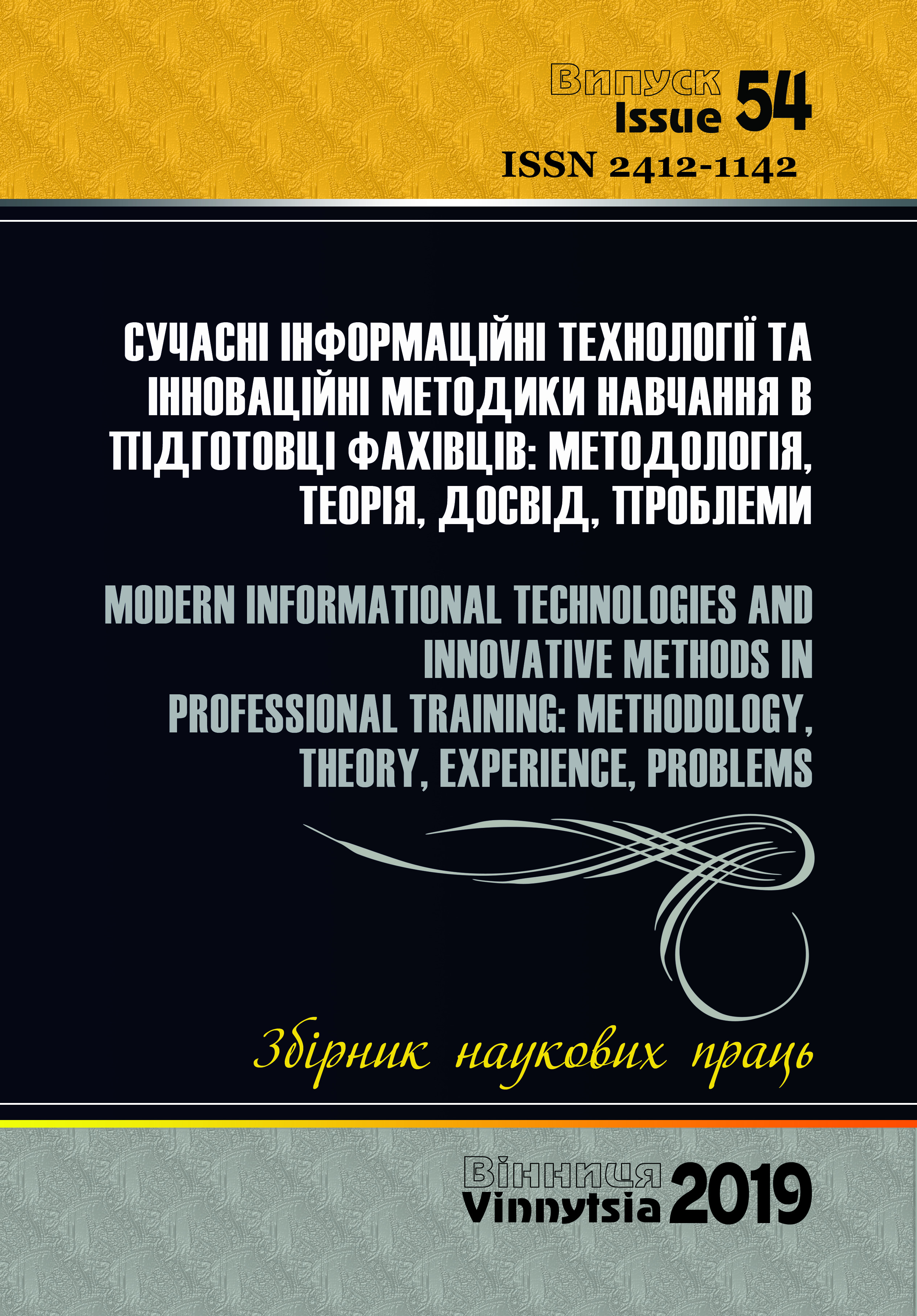VOCATIONAL SCHOOL STUDENTS’ PROFESSIONAL SKILLS TRAINING STAGES AND STRUCTURE
DOI:
https://doi.org/10.31652/2412-1142-2019-54-41-45Keywords:
education, professional abilities, skills, skills, sphere of life, creative potentialAbstract
In keeping with the modern society, the requirements of the future graduate's vocational education
are changing, he needs to quickly adapt to the new conditions of production. Therefore, along with the technological
training of a specialist, the formation of professional abilities becomes important. Therefore, the problem of
personality development and its professional development stands out as an important direction of modern
pedagogical theory and is the result of awareness of the growing dynamics of youth vocational training processes.
Analyzing the psycho-pedagogical and methodological literature on the research problem, we see that the
issues of determining the professionally important qualities of a skilled worker and the peculiarities of their formation
have been the subject of study of many educators and psychologists, but not enough has been studied. There has been
conducted an analysis of existing approaches to the skills classification. Also there has been determined the service
workers professional skills structure, and the formation of their stages. The author describes cognitive processes that
are the basis of service workers. The conducted research has shown that it is most expedient to carry out the formation
of professional abilities in a sequence: primary professionalization, professional perfection, professional realization.
Analyzing the research, we see that insufficient attention is paid to the training of skilled workers. Therefore,
the problem of developing professional skills in future skilled workers requires further research related to the
justification of the stages of entry into the profession and the methods that can be used to increase the efficiency of
the process.
Downloads
References
Гудиева Л.Х.-У. Формирование готовности учащихся швейних ПТУ к профессиональной самореализации. - Дисс. канд. пед. наук. - С., 2002. - 182 с.
Давыдов В.П., Рахимов О.Х.-А. Теоретические и методические основы моделирования процесса профессиональной
подготовки специалиста // Инновации в образовании. - 2002. - No 2. - С. 62-83.
Карельская А. Формирование профессионально значимых качеств личности будущого педагога //
Профессиональное образование. - 2003. - No 3. - С. 22.
Крутецкий В.А. Проблеми психологии. – М.: Просвещение, 1974. – 120 с.
Платонов К.К. Краткий словарь системы психологических понятий: Учебное пособие для учених заведений
профтеобразования. – 2-е узд., и доп. – М.: Высшая школа, 1984. – 174 с.
Прядехо А. Алгоритм развития познавательних способностей учащихся // Педагогика. 200. - No3. – С. 8 – 15.
Рубинштейн С.Л. Основи общей психологии . – М.: Гос. уч.-пед. Наромпроса РСФСР, 1940 – 546 с.
Шадриков В.Д. Введение в психологическую теорию профессионального обучения: Учебное пособие. – Ярославль:
Ярославский государственный университет, 1981. – 71 с.
Downloads
Published
Issue
Section
License
Copyright (c) 2020 Л. В. Мартиненко

This work is licensed under a Creative Commons Attribution 4.0 International License.

